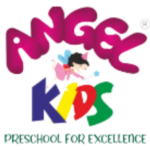How to Choose the Right Preschool for Your Child in India
I. Introduction
Choosing the right preschool for your child can be a daunting task, especially in India where there are so many options available. As a parent, you want to ensure that your child receives the best education and care possible, but with so many factors to consider, it can be overwhelming.
In this guide, we will walk you through the essential factors to consider when selecting a preschool for your child in India. We’ll cover everything from the location of the preschool to the curriculum, teaching methodologies, facilities, and infrastructure, health and safety measures, extracurricular activities, parent involvement, and reputation and reviews.
By the end of this article, you will have a clear understanding of what to look for in a preschool and how to make an informed decision for your child’s education and development. Let’s get started!
II. Location and Accessibility
Location and accessibility are important factors to consider when choosing a preschool for your child in India. Here are some things to keep in mind:
A. Proximity to Home or Work
Choose a preschool that is located close to your home or workplace. This will make drop-offs and pickups easier, and will reduce the amount of time your child spends commuting. You don’t want your child to be exhausted before even starting the school day!
B. Safe and Convenient Location
Make sure the preschool is located in a safe and convenient area. Check for things like traffic congestion, unsafe intersections, or other hazards that may make it difficult to drop off or pick up your child.
C. Accessibility for Children with Special Needs
If your child has special needs, make sure the preschool is accessible and accommodating. This includes things like wheelchair ramps, accessible bathrooms, and other accommodations that may be necessary.
D. Ample Parking
Make sure the preschool has ample parking space for parents to drop off and pick up their children. This will make things less stressful for parents and staff alike.
E. Local Community
Consider the local community and neighbourhood where the preschool is located. Are there parks, libraries, and other amenities nearby? Are there other families with young children in the area? This can help create a supportive and friendly environment for you and your child.
By keeping these factors in mind, you can choose a preschool that is conveniently located and safe for your child.
III. Curriculum and Teaching Methodologies
When choosing a preschool, it is important to consider the curriculum and teaching methodologies used by the school. Here are some key points to keep in mind:
A. Types of Preschool Curriculum
There are several types of preschool curriculums followed in India, including:
- Montessori – This method focuses on child-led learning through exploration and discovery.
- Playway – This approach emphasizes play-based learning and is designed to foster creativity and curiosity.
- Reggio Emilia – This curriculum is based on project-based learning and encourages children to learn through collaboration and inquiry.
- Waldorf – This method is focused on holistic development and emphasizes hands-on learning through storytelling, arts, and crafts.
Check More: https://blog.mybrightwheel.com/types-of-preschool-programs
B. Teaching Methodologies
Preschools in India use various teaching methodologies to support their curriculum, including:
- Activity-based learning – This approach encourages children to learn through hands-on activities and experiences.
- Teacher-led instruction – In this approach, teachers use a range of teaching methods, including storytelling, games, and songs, to engage children and facilitate learning.
- Individualized instruction – Some preschools offer individualized instruction to cater to the unique learning needs of each child.
C. Importance of the Right Curriculum and Teaching Methodology
Choosing the right curriculum and teaching methodology is important for your child’s overall development. A good curriculum should be age-appropriate and promote cognitive, social, and emotional growth. Teaching methodologies should be interactive and engaging, and allow children to learn at their own pace.
It is important to remember that not every curriculum or teaching methodology may be suitable for your child. Each child has their own unique learning style and preferences, and it is important to find a preschool that can cater to their needs. When visiting different preschools, make sure to ask about their curriculum and teaching methodologies, and observe how the teachers interact with the children to get a better idea of the approach used. Also check this out – Preschoolers – Everyday Care (verywellfamily.com)
IV. Teachers and Staff
One of the most important factors to consider when choosing a preschool in India is the quality of the teachers and staff. Here are some things to look for:
A. Qualifications and Experience
Look for preschools that have qualified and experienced teachers who have received training in early childhood education. They should also be certified by the relevant authorities.
B. Student-Teacher Ratio
The student-teacher ratio is another important consideration. A low student-teacher ratio ensures that each child gets the individual attention they need. Look for a preschool that maintains a ratio of 1:10 or lower.
C. Teaching Styles
Different teachers have different teaching styles, and it is important to find one that matches your child’s learning style. Some teachers may be more structured and traditional, while others may be more creative and hands-on.
D. Interpersonal Skills
The teachers and staff should have good interpersonal skills and be able to create a positive learning environment. They should be approachable, caring, and patient with the children.
E. Communication Skills
The teachers and staff should also have good communication skills and be able to communicate effectively with both children and parents. They should be able to provide regular updates on the child’s progress and be open to feedback and suggestions from parents.
F. Classroom Management
The teachers should be able to manage the classroom effectively and maintain discipline without resorting to harsh measures. They should be able to create a safe and nurturing environment where children feel comfortable and secure.
By considering these factors, parents can ensure that they choose a preschool with qualified and experienced teachers who can provide their child with the best possible learning experience.
V. Facilities and Infrastructure
When it comes to choosing a preschool for your child, the facilities and infrastructure provided by the school play a crucial role in their learning and development. Here are some factors to consider:
- Playground: A safe and well-maintained playground is essential for children to engage in physical activity and develop their gross motor skills. Look for a preschool that has a good-sized playground with age-appropriate equipment.
- Restrooms: The restrooms should be clean and hygienic, with child-sized toilets and sinks. It’s important to ensure that the preschool has proper hygiene measures in place to prevent the spread of infections and diseases.
- Safety Measures: The preschool should have safety measures in place to ensure the safety of the children. This includes features such as fire extinguishers, first aid kits, and emergency contact information.
- Technology: In today’s digital age, it’s important to consider the use of technology in preschools. Look for a preschool that uses technology in an age-appropriate manner to enhance learning and development.
- Transportation: If the preschool offers transportation services, make sure that they have safe and well-maintained vehicles with trained drivers.
When evaluating the facilities and infrastructure of a preschool, it’s important to keep in mind the needs and preferences of your child. By choosing a preschool with the right facilities and infrastructure, you can ensure that your child has a safe, comfortable, and enjoyable learning experience.
VI. Health and Safety Measures
When selecting a preschool for your child, it’s important to consider the health and safety measures taken by the school to ensure the well-being of your child. Here are some factors to keep in mind:
- Cleanliness and Hygiene: Make sure the preschool follows strict hygiene practices, such as regular cleaning and sanitization of the premises, especially in common areas like bathrooms, play areas, and classrooms.
- Medical Assistance: Check if the preschool has a medical room with a trained nurse and a doctor on call in case of emergencies. Also, check the availability of first aid kits and other medical supplies.
- Safety Measures: Ensure that the preschool has proper safety measures in place, such as CCTV cameras, secure gates, and trained security personnel. This will help create a safe environment for your child.
- Allergies and Special Needs: In case your child has any allergies or special needs, make sure the preschool is aware of them and has a plan in place to accommodate them.
- Staff Training: Check if the staff is trained in CPR and basic first aid. Additionally, ensure that the staff is trained to handle emergencies and has a plan in place for the same.
By considering the above-mentioned health and safety measures, you can ensure that your child is attending a preschool that prioritizes their well-being and safety.
VII. Extracurricular Activities
In addition to academics, extracurricular activities are an essential part of a child’s learning experience. These activities help children develop their social skills, creativity, and physical abilities. Here are some of the extracurricular activities that preschools in India may offer:
- Sports: Many preschools offer sports activities such as running, jumping, ball games, and swimming. These activities help children build their physical abilities and improve their coordination.
- Arts and Crafts: Arts and crafts activities allow children to express their creativity and develop their motor skills. These activities may include drawing, painting, sculpting, and creating collages.
- Music and Dance: Music and dance activities can help children develop their rhythm and coordination. These activities may include singing, playing musical instruments, and learning different dance styles.
- Storytelling and Drama: Storytelling and drama activities can help children develop their communication skills and imagination. These activities may include reading books, performing skits, and participating in puppet shows.
- Field Trips: Many preschools organize field trips to nearby places such as museums, parks, and zoos. These trips allow children to explore and learn about the world around them.
When choosing a preschool for your child, it’s important to consider the extracurricular activities offered. Look for a preschool that offers a variety of activities that your child will enjoy and that will help them develop their skills. Additionally, inquire about the safety measures taken during these activities to ensure the well-being of your child.
Remember that extracurricular activities should not be the sole focus when choosing a preschool. The primary focus should be on academics and the overall learning experience. However, the right balance of academics and extracurricular activities can help create a well-rounded learning experience for your child.
VIII. Reputation and Reviews
When it comes to choosing the right preschool for your child, it’s important to research the reputation and reviews of the preschool before making a final decision. Here are some tips to help you find reliable and trustworthy sources for reviews:
- Check the Preschool’s Website: Most preschools in India have a website where you can find information about the school’s curriculum, facilities, and staff. Check if the website has any testimonials or reviews from parents, and read them carefully to get an idea of what other parents think of the preschool.
- Ask Other Parents: Talk to other parents in your community who have already gone through the process of choosing a preschool for their child. Ask them about their experiences with different preschools and if they have any recommendations or warnings about specific preschools.
- Online Reviews: Search for the preschool on popular review sites like Google, Facebook, and Yelp to see what people are saying about the preschool. Be sure to read both positive and negative reviews to get a balanced perspective.
When evaluating reviews, look for common themes or issues that are mentioned repeatedly. For example, if multiple reviews mention a lack of communication from the preschool, it might be a red flag.
It’s important to keep in mind that not all online reviews are trustworthy. Some reviews may be fake or written by people who have never actually used the preschool’s services. Use your best judgment when evaluating reviews, and consider multiple sources of information.
In conclusion, researching the reputation and reviews of a preschool is an important step in choosing the right preschool for your child. By following the tips above and using your best judgment, you can make an informed decision and find a preschool that meets your child’s needs.
IX. Conclusion
Choosing the right preschool for your child in India is a crucial decision that can impact their development and growth. By considering the following factors, you can make an informed decision that ensures your child receives the best education and learning experience possible.
- Location and Accessibility: When selecting a preschool, it’s essential to choose a location that is easily accessible and conveniently located for parents and children.
- Curriculum and Teaching Methodologies: Preschools in India follow different types of curriculums and teaching methodologies. It’s crucial to understand the pros and cons of each to find the best fit for your child’s learning needs.
- Teachers and Staff: Qualified and experienced teachers are essential to providing quality education and fostering a safe and nurturing environment for children.
- Facilities and Infrastructure: The facilities and infrastructure provided by the preschool can have a significant impact on the child’s learning experience.
- Health and Safety Measures: Ensuring that the preschool has proper health and safety measures in place can help create a safe and healthy learning environment for the child.
- Extracurricular Activities: Participating in extracurricular activities can help foster creativity, social skills, and physical development in children.
- Reputation and Reviews: Researching the preschool’s reputation and reviews can help you make an informed decision that ensures your child receives the best education possible.
By considering these factors and taking the time to research and evaluate different preschools, you can find the right fit for your child and ensure that they receive the best education and learning experience possible.
Thank you for reading, and we hope this guide helps you in selecting the right preschool for your child in India.
You can also check out our pre-school, Angel Kids situated at Kachiguda Hyderabad.



This blog provides invaluable insights into selecting the right preschool for children in India, emphasizing essential factors to consider during the decision-making process. From curriculum and facilities to safety measures and location, it covers various aspects crucial for parents. Platforms like Edustoke offer additional support by providing a comprehensive database of preschools in Hyderabad, including those in localities like Padmarao Nagar, Ved Vihar, Rashtrapati Rd, Pocharam, Neredmet, Jeedimetla, P&T Colony, Goutham Nagar, Sitaphal Mandi, Warasiguda, Moula Ali. By utilizing Edustoke, parents can access detailed information about each preschool, including reviews, ratings, and facilities, facilitating a more informed decision-making process. This integration of online resources with practical advice from the blog enables parents to navigate the preschool selection process effectively, ensuring they find the best fit for their child’s early education needs.
Good https://is.gd/tpjNyL